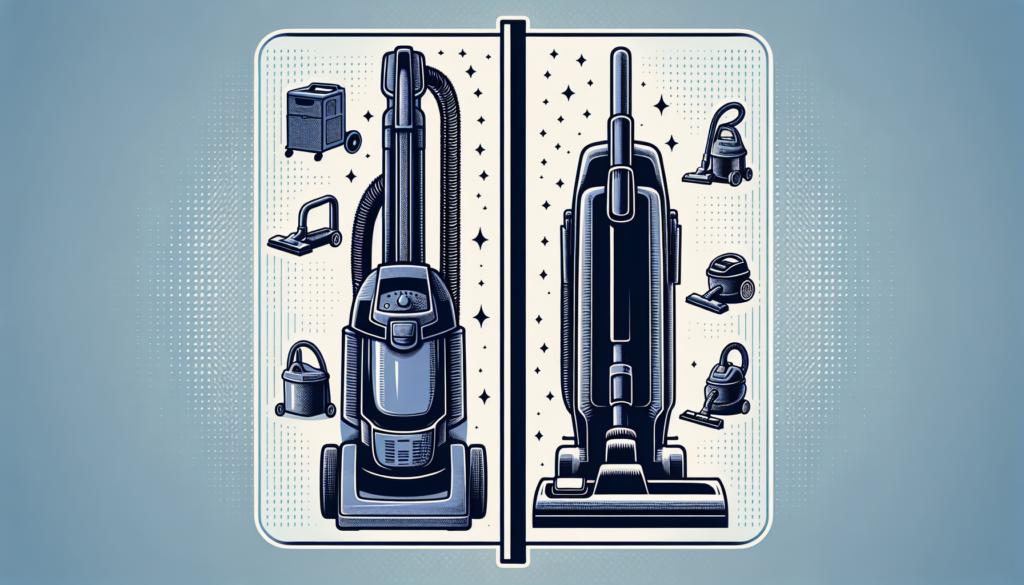Looking to upgrade your home appliances? Look no further, because BuySellCloud.com has got you covered with their comprehensive guide to buying home appliances. Whether you’re in the market for a new refrigerator, washing machine, or dishwasher, this guide will provide you with expert buying guides and insightful tips to help you make confident purchase decisions. With the help of BuySellCloud.com, finding the perfect appliances for your home has never been easier. Start shopping smarter today!

1. Determining Your Needs
When it comes to buying home appliances, the first step is to determine your needs. Start by assessing your current appliances and identifying any gaps or requirements. Take a look at what appliances you already have and consider their age, condition, and functionality. Are there any appliances that are not meeting your needs or performing optimally? This will help you identify which appliances you need to replace or upgrade.
Next, consider your lifestyle and preferences. Think about how you and your family use your appliances on a daily basis. Are you a busy professional who needs appliances that can save you time and effort? Do you have a large family and need appliances that can handle heavy usage? Are you environmentally conscious and looking for energy-efficient options? Understanding your lifestyle and preferences will help guide your decision-making process when it comes to choosing the right appliances for your home.
2. Researching Appliances
Once you have determined your needs, it’s time to start researching the different types of appliances available in the market. Understanding the features and functionalities of different appliances will help you make an informed decision.
Start by familiarizing yourself with the different types of appliances that are commonly used in households. This could include refrigerators, ovens, dishwashers, washing machines, dryers, and more. Each appliance has its own unique features and specifications, so it’s important to understand what each one offers.
Energy efficiency is another important factor to consider when researching appliances. Look for appliances with high energy efficiency ratings, as this not only helps reduce your carbon footprint but also saves you money on energy bills in the long run. Energy efficiency ratings are usually displayed as an Energy Star certification, which signifies that the appliance meets specific criteria for energy efficiency.
Another aspect of researching appliances is looking into different brands and models. Read reviews and ratings from other consumers to get an idea of the reliability and performance of different brands. Pay attention to customer feedback and consider factors such as durability, ease of use, and customer service.

3. Setting a Budget
Before making any purchase, it’s important to evaluate your financial situation and set a budget for your appliance shopping. Take a look at your overall financial picture and determine how much you can comfortably spend on new appliances.
Consider not only the immediate upfront cost of the appliances but also the long-term costs and savings. Energy-efficient appliances may have a higher upfront cost but can save you money on utility bills over time. Take this into account when setting your budget and consider the potential long-term savings.
It’s also important to factor in any financing options that may be available to you. Some retailers offer financing plans or payment options that can make it more affordable to purchase appliances within your budget. Explore these options and consider if they are a good fit for your financial situation.
4. Measuring and Assessing Space
One crucial step that is often overlooked is measuring and assessing the space where your appliances will be installed. Before making any purchases, be sure to accurately measure the available space to avoid any potential issues during installation.
Measure the height, width, and depth of the space where the appliance will be placed. This will help ensure that the appliance fits correctly and does not obstruct any surrounding cabinets or walls. Take into consideration any specific installation requirements, such as ventilation needs or clearance space for proper functioning.
It’s also a good idea to assess the overall layout of your kitchen or laundry room and consider any future upgrades or renovations that you may have in mind. This will allow you to choose appliances that are not only suitable for your current space but can also be seamlessly integrated into any future changes to your home.

5. Understanding Features and Technology
As technology continues to advance, household appliances are becoming more feature-rich and incorporating advanced technology options. Understanding these features and technology is essential to ensuring you choose the right appliances for your needs.
Start by exploring essential features that are necessary for the optimal functioning of the appliance. For example, if you’re looking to buy a refrigerator, consider features such as adjustable shelves, temperature control settings, and a frost-free freezer. Make a list of the features that are important to you based on your needs and preferences.
Next, learn about the advanced technology options that are available. This could include options such as smart controls, Wi-Fi connectivity, and voice assistants. These features can provide added convenience and control over your appliances. However, it’s important to consider whether these features are necessary for your lifestyle and if they fit within your budget.
Finally, consider smart home integration. Many appliances now offer compatibility with smart home systems, allowing you to control and monitor your appliances remotely through your smartphone or voice commands. If you already have a smart home system in place or plan to invest in one, consider appliances that can seamlessly integrate into your existing setup.
6. Evaluating Energy Efficiency
Energy efficiency should be a top consideration when buying home appliances. Not only does it help reduce your environmental impact, but it can also save you money on energy bills in the long run.
To evaluate energy efficiency, it’s important to understand energy efficiency ratings. These ratings provide information about the appliance’s energy consumption and efficiency compared to other models. Look for the Energy Star certification, which indicates that the appliance meets strict energy efficiency standards set by the Environmental Protection Agency.
Compare the energy consumption and costs of different appliances to determine which ones will be the most energy-efficient. Consider factors such as the annual energy consumption and the estimated annual energy cost. This information is usually available on the appliance’s Energy Guide label.
Making energy-efficient choices not only benefits the environment but can also qualify you for potential rebates or incentives from utility companies or government programs. Consider if any such incentives are available in your area and factor them into your purchasing decision.
7. Assessing Reliability and Durability
When investing in home appliances, it’s important to consider their reliability and durability. You want appliances that will not only perform well but also last for a long time.
Research the reputation of different brands by reading customer feedback and reviews. Look for brands that have a good reputation for producing high-quality and reliable appliances. Consider factors such as ease of maintenance, availability of spare parts, and overall customer satisfaction.
Warranty and service options are also important considerations. Check the warranty coverage offered by the manufacturer and understand the terms and conditions. Look for brands that offer comprehensive warranties and have a good reputation for prompt and reliable customer service.
In addition, check for reliability and maintenance records of the appliances you are considering. Are there any known issues or recurring problems with a particular model or brand? Understanding the history of a product’s reliability can help you make a more informed decision.
8. Comparing Prices and Deals
Once you have narrowed down your options based on your needs, budget, and other considerations, it’s time to compare prices and look for deals.
Research different retailers and online platforms to find the best prices. Look for reputable retailers that offer competitive pricing and have a good track record of customer satisfaction. Consider factors such as shipping costs, delivery options, and after-sales support.
When comparing prices, also consider any discounts or promotions that may be available. Retailers often run sales or offer special deals on appliances, so keep an eye out for any opportunities to get a better price on the appliance you want. However, it’s important to balance price with quality and reliability, so be cautious of deals that seem too good to be true.
If your budget allows, consider higher-end models or appliances with additional features that may be on sale. Sometimes, paying a little more upfront can provide you with better long-term value and satisfaction.
9. Seeking Expert Advice
If you’re still unsure about which appliances to choose, don’t hesitate to seek expert advice. There are several avenues you can explore to get the guidance you need.
Consult sales representatives at appliance stores or retailers. They are trained to provide information and answer any questions you may have about different appliances. Take advantage of their expertise and gather as much information as you can before making a decision.
Another valuable source of advice is your friends and family. Reach out to them and ask for their recommendations based on their personal experiences with certain brands or models. They may have insights or tips that you haven’t considered, and their feedback can be invaluable in your decision-making process.
Online forums and communities dedicated to home appliances are also a great resource for advice and recommendations. Engage in discussions, ask questions, and share your concerns. The collective wisdom of these communities can provide you with valuable insights and help you make an informed decision.
10. Making the Purchase
After thorough research and consideration, it’s time to make the final purchase. Take the following steps to ensure a smooth buying process:
Finalize Your Decision: Review your notes, consider all the factors you have previously assessed, and make a final decision on which appliances to purchase. Double-check that the chosen appliances align with your needs, preferences, and budget.
Check Delivery and Installation Options: Coordinate with the retailer or seller to determine the delivery and installation options available. Ensure that the appliances can be delivered and installed safely and efficiently in your home. Confirm any additional costs associated with delivery or installation.
Take Advantage of Warranties and Return Policies: Before completing the purchase, carefully review the warranty details provided by the manufacturer. Understand the coverage offered and any possible limitations or exclusions. Additionally, familiarize yourself with the seller’s return policy in case the appliances do not meet your expectations or have any defects.
By following this comprehensive guide to buying home appliances, you can make an informed decision and choose the right appliances for your needs. Remember to take into account your current appliances, lifestyle, and budget, and thoroughly research different options before finalizing your purchase. With careful consideration, you can enjoy reliable and efficient appliances that enhance your daily life.




